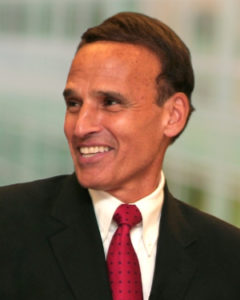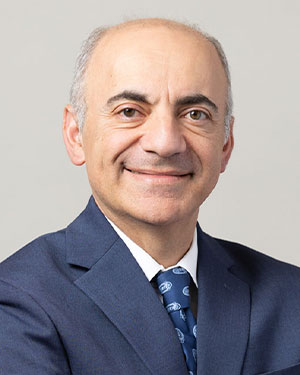Ramin Davidoff, MD, on value-based care and how it benefits older adults.
Health Care Technology: Overhyped or Underutilized?
Federation Co-CEO Robert Pearl, MD, Talks Health IT Tools
American health care is rapidly approaching the edge of a cliff, according to Robert Pearl, MD, co-CEO of The Permanente Federation, in a March 23 talk at the 2017 Splash Health Wellness and Wearables conference in San Francisco.
Splash Health focuses on innovation in health care technology.

Dr. Pearl, who is also executive director and CEO of The Permanente Medical Group and president and CEO of the Mid-Atlantic Permanente Medical Group said that the health care industry is still operating under 20th century technology, and a dearth of leadership has resulted in high costs and poor quality in health care. In his talk, he addressed health care technologies that are overhyped, as well as those that are underutilized yet show promise.
Overhyped Technologies
- Artificial Intelligence. Pearl commented on the power of search tools like IBM’s Watson. Watson can answer medical questions in microseconds and search thousands of medical journals quickly. But it lacks context about individual patients. Artificial intelligence in health care, according to Dr. Pearl, is a solution in search of a problem.
- Wearables. They tell a user how much they’ve walked or slept, but Dr. Pearl pointed out that this is information the user likely already knows, and the wearable doesn’t give them a mechanism to improve. He dismissed the utility of wearables that send constant updates to doctors, such as EKG monitoring, saying this data is cumbersome for physicians. A wearable, he said, might be helpful if the device could tell a patient when they’re in trouble – but it would have to be sophisticated and there would be regulatory issues.
Promising Technologies
- The comprehensive electronic health record. Dr. Pearl differentiated between this and a standalone computer in the doctor’s office, which solves the problem of bad handwriting, but doesn’t keep track of the whole patient. He highlighted the benefits of systems like Kaiser Permanente, where all of a patient’s data is presented to the physician at every touch point.
- Video. According to Dr. Pearl, video will be a game-changing technology for American medicine. It’s the fastest-growing type of care Kaiser Permanente provides, and can be accessed on a variety of devices. Dr. Pearl believes that up to 40 percent of care can be provided over video.
- Data Analytics. Pearl differentiated integrated medical record data from the search abilities of a program like Watson. He said that applying sophisticated algorithms to large amounts of patient data can help physicians predict which patients may require care, allowing systems to treat tomorrow’s patients today.
Dr. Pearl offered the audience solutions to better implementation of technology in the health care space, saying technology is usually invented and then applied to various contexts. That should be flipped. He encouraged innovators to take the time to identify and understand challenges in the health care, and then design new technologies that address them directly.
He also mentioned the challenge of monetizing technology in an age where insurance companies and hospitals are wary of paying for unproven tools. This can be addressed by more integration at the delivery system level, providing the infrastructure to invest.


